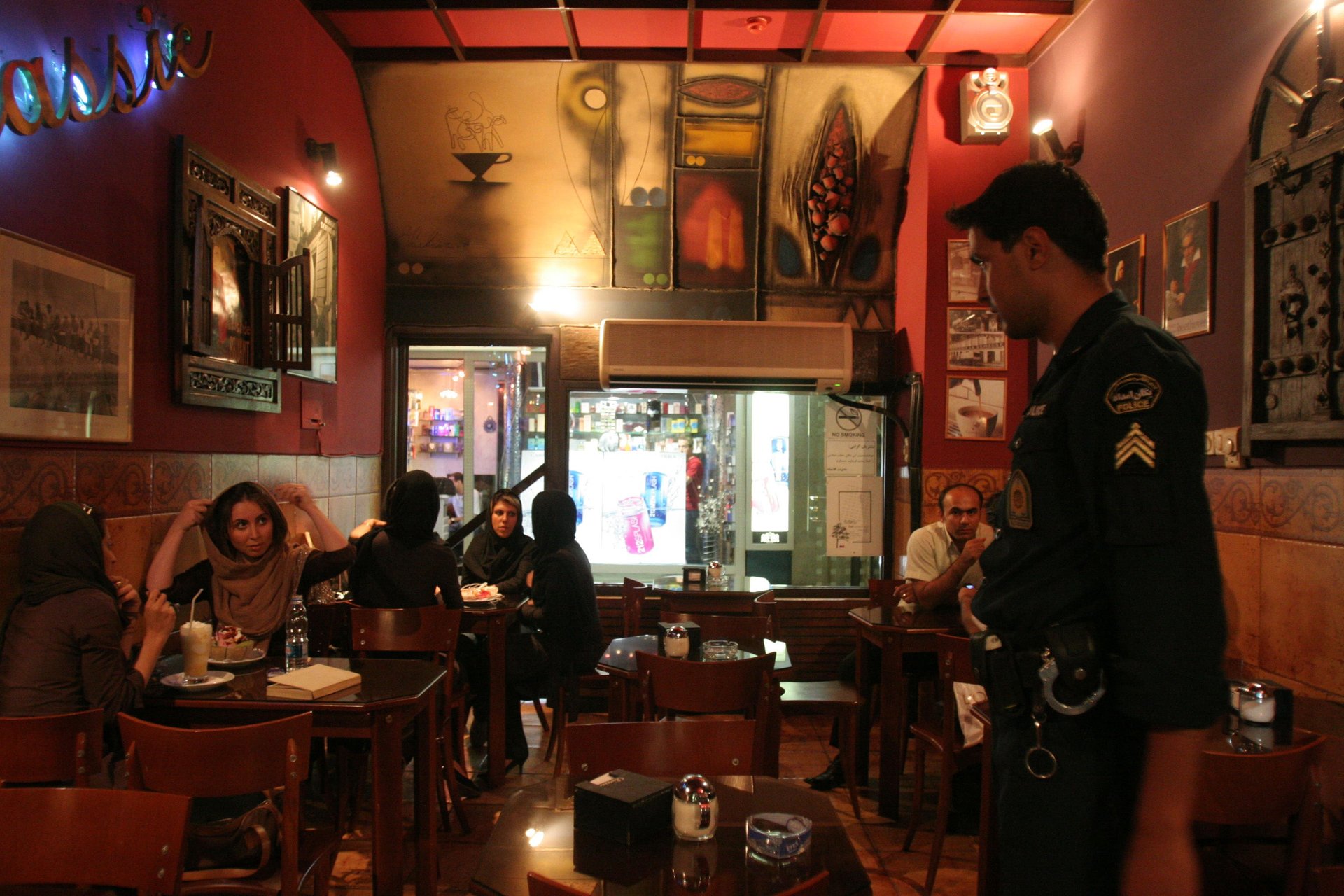Nearly 550 restaurants in Tehran have been shut down for breaking “Islamic principles”
The Iranian capital of Tehran is down 547 restaurants and cafés following a severe police crackdown on establishments found to be flouting “Islamic principles”—playing illegal music, posting “unconventional advertising in cyberspace,” or otherwise permitting “debauchery.”


The Iranian capital of Tehran is down 547 restaurants and cafés following a severe police crackdown on establishments found to be flouting “Islamic principles”—playing illegal music, posting “unconventional advertising in cyberspace,” or otherwise permitting “debauchery.”
In an online statement, Tehran police chief Hossein Rahimi announced the closure of the eateries, as well as the arrests of 11 people. “Observing Islamic principles is…one of the police’s main missions and responsibilities,” he said. The operation, carried out over the past 10 days, appears to have been a heightened attempt to enforce “moral behavior” around the holy month of Ramadan, which ended June 4. In Ishafan, some 275 miles (440 km) south of Tehran, a further 300 restaurants were sealed.
Such policing is not limited to restaurants. Though eating during daylight hours in Ramadan is not technically illegal, those caught snacking between dawn and dusk in public places often face arrest. A new text-in phone number, issued June 8 by Tehran’s guidance court, is a call to action for Tehran citizens: If you know someone “hosting mixed gender parties,” posting “immoral content” to Instagram, or otherwise displaying signs of “social or moral corruption,” it’s your duty to report it.
Meanwhile, 2,000 new all-female morality police units are to be tasked with ensuring that Iranian women wear the hijab, or headscarf. One local police chief described growing dissent from women on the topic as “a serious political and security issue for our country,” with Iran at risk from the perils of “Western lifestyle.” Special cameras on the Iranian highways are also in place to monitor female drivers who might remove their hijabs while driving in rural or suburban areas.
These are only the latest incarnation of government-ordered controls on public morality. In 2012, as the Guardian reports, cafés were ordered to install CCTV cameras, to keep an electronic eye on their customers’ behavior. Café Prague, then a popular coffee house and sanctuary for young activists and intellectuals, refused to buckle.
“We always knew this day would come and, in the midst of Tehran’s grimy winter, our end has finally arrived in spite of our many attempts to stay afloat,” the owners wrote in a Facebook post. “But as much as it pains us and as much as we will miss our friends and all of you who stood by our side in the past four years, we take comfort in knowing that we at least didn’t let Big Brother’s glass eyes scan and record our every step, minute and memory from dawn till dusk.”